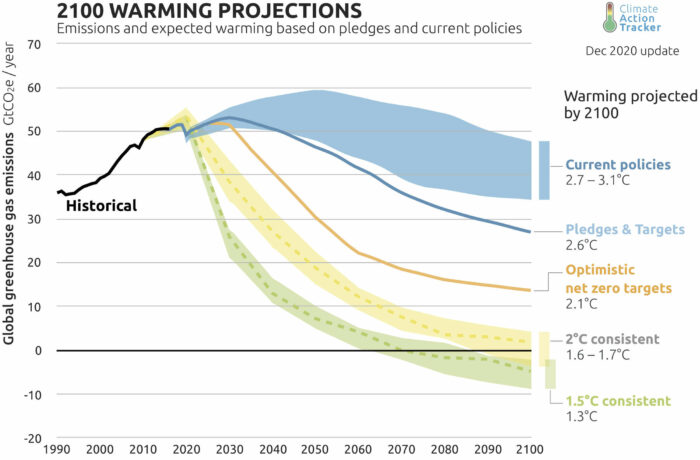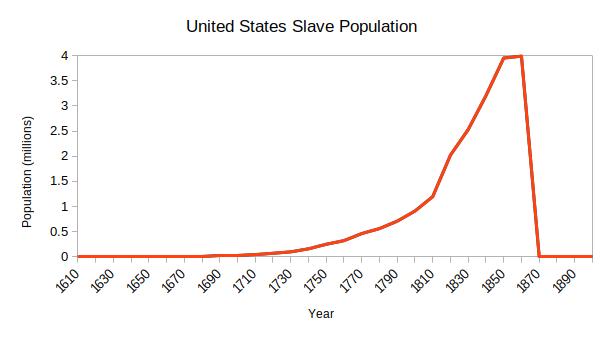When changing fast is easier than slow
Here are some projections for global warming based on various assumptions. Note the slow changes, which presumes people not changing our behaviors.

The great historical example of changing global culture is abolitionism. It took off first in places without slavery in the territory, like Europe. One of the most challenging places to end the institution was the United States, which profited from it so much, though Europe was happy to buy the cotton.
When the Thirteenth Amendment, which made slavery illegal except after convictions, was first being considered, people considered allowing slaveholders until 1900 to free all slaves. It’s tempting to think for such a big change, allowing time for a transition makes sense, but not from the slave’s perspective. Would you say to them, “We think it should be illegal for someone to enslave you, but I hope you understand for such a big economic change, we’re going to keep you enslaved for another three decades”?
No, it had to happen immediately. Many mistakes happened during Reconstruction we can learn from but I looked up the number of slaves in the U.S. in the peer-reviewed From ‘20. and odd’ to 10 million: The growth of the slave population in the United States, by J. David Hacker in the journal Slavery & Abolition. Here are the results. Note the sharp drop to zero in 1865:

I know few will believe me, especially anyone who hasn’t tried living more sustainably, but we will have an easier time if we try to reach zero pollution and depletion in a timescale of a few years than if we try to phase down in the charts above.
If we change overnight, we’ll wish we had earlier. If we change on the scales in the first graph above, we’ll extend and extend, disliking the process at every stage. As things that polluting and depleting allow, like large SUVs, plastic, and flying, become more scarce, people will fight over them. Fighting will accelerate polluting and depleting.
As for the mistakes and unintended consequences of abolition, we can learn from history, but the biggest thing we should learn is that as soon as possible will work best. After all, we have a government that not only isn’t protecting life, liberty, and property, it is profiting and growing from permitting it.
Who wants a society where other people and the government profit from destroying your life, liberty, and property? When we have regions called Cancer Alley, how can we not conclude the government is growing and profiting from permitting destroying life, liberty, and property? The original intent of the people who drafted the Constitution was not to allow me to give you cancer.
Read my weekly newsletter

On initiative, leadership, the environment, and burpees
Pingback: Magnitude of suffering and death then and now » Joshua Spodek